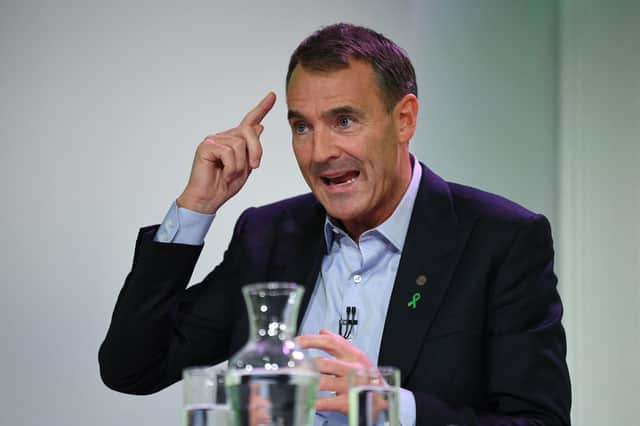Climate change: UK windfall tax can be a lever to persuade fossil fuel companies to act on global warming – Scotsman comment


The case for a windfall tax, as dramatic a step as that would be, almost makes itself.
However, BP’s chief executive Bernard Looney, who in November excitedly described his company as a “cash machine” as energy prices soared, offered some interesting counter arguments.
Advertisement
Hide AdAdvertisement
Hide AdA windfall tax would, he said, discourage investors at a time when BP is planning to increase its spending on renewable energy to 40 per cent of its total expenditure by 2025, cut oil and gas production by 40 per cent by 2030, and produce an extra 50 gigawatts of renewable power.
So, although the UK government has so far resisted calls for a windfall tax, it would appear Looney takes the threat of one seriously enough to enter into what looks a lot like a negotiation.
The cost-of-living crisis is so great that swift action needs to be taken and the moral justification for taking a slice of soaring profits to help people forced to choose between heating and eating is clear.
However, the windfall tax could be kept to a minimum, with the government shouldering the burden with funds from elsewhere, on the basis that fossil fuel companies are genuinely making significant progress in the transition towards renewables. After all, BP and other private companies are likely to make more efficient use of their funds than the government.
If they develop more sources of renewable energy in this country, that would insulate British consumers from oil and gas price hikes on the global market, improve the UK’s fuel security and, most importantly of all, cut greenhouse gas emissions.
The stakes in the fight against the potentially existential threat of climate change could not be any higher and humanity needs everyone, including the fossil fuel industry, to pull together. We really are all in it together when the ‘it’ is planet Earth.
If the threat of a windfall tax helps some to see that, it should be a policy to return to in the event that the profits keep rolling in and the carbon keeps pumping.
A message from the Editor:
Thank you for reading this article. We're more reliant on your support than ever as the shift in consumer habits brought about by coronavirus impacts our advertisers.
If you haven't already, please consider supporting our trusted, fact-checked journalism by taking out a digital subscription.
Comments
Want to join the conversation? Please or to comment on this article.
